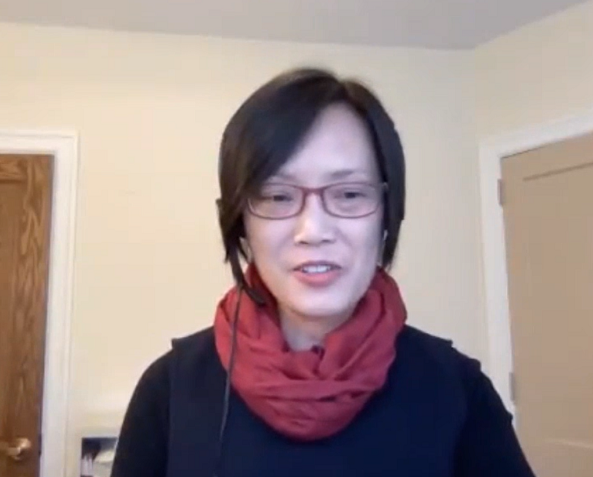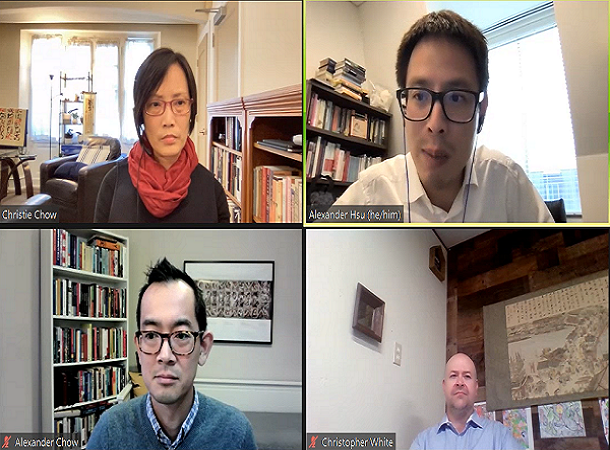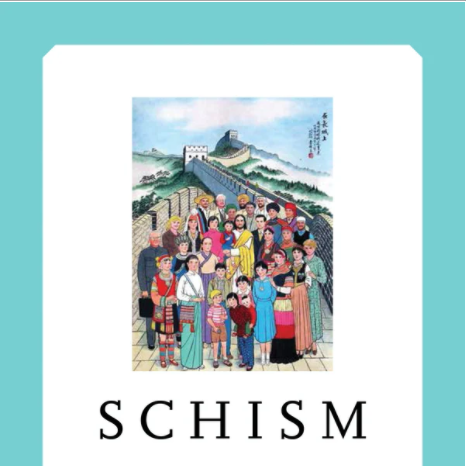A virtual book launch for Schism: Seventh-day Adventism in Post-Denominational China, the first monograph that documents the life of the Chinese Adventist denomination from the mid-1970s to the 2010s, was held on October 15.
Taking the form of a panel discussion, the book launch co-hosted by the Liu Institute for Asia and Asian Studies, University of Notre Dame, and University of Notre Dame Press discussed how Adventism as a minority denomination managed to keep its denominational identity in a so-called post-denominational China.
The author Dr. Christie Chui-Shan Chow, an independent researcher in World Christianity and Chinese Religions, is a Seventh-day Adventism member herself from Hong Kong. She observed that Chinese Adventism, with over 400,000 members, was a key contributor in both Chinese Protestantism and the global church, yet very little work had been done on this Protestant minority.
“The story of Chinese Adventism can help us better understand the development of Protestant Christianity in China during the Maoist and Reform eras”, said Dr. Chow.
Although Christianity in Mainland China had been often perceived to be “post-denominational” or “non-denominational” because of the absence of influence from the foreign missionaries since the founding of PRC, Dr. Chow who earned her Ph.D at Princeton Theological Seminary argued that a close look at Adventism churches in China could challenge this statement.
“(If that was the case,) How do we explain that in China, the American Adventism doctrines and practices continue to define this group of believers’ identity and theology? ... If you look at them (Chinese Protestant Christians) ‘underground’ to observe how the practice their faith, in the case of Seven-day Adventism, some believers identify themselves strongly as a unique denomination.”
Using an ethnographic and archival methodology, Dr. Chow’s book researched the Adventism in Wenzhou from the 1970s to 2020s, a changing era of exploring capitalization, rule of law, and urbanization. In Wenzhou, a coastal city in East-China famous for its high Christian population, which is the very place that Adventism schism started, Dr. Chow found that amid the state repression on faith, local Christians would stick to their belief, sometimes so strongly that they would divide a church to promote the faith that they consider to be orthodox.
Professor Christopher White, assistant director at the Center on Religion and Chinese Society of Purdue University, agreed that the “post-denominational” Chinese Church was more complicated than it sounded. He added that the book “revealed that not only is Adventism a distinct group of Chinese Christianity, the denomination itself is divided into factions. And in fact, it is through schisms that Adventism was able to preserve unique beliefs and practices.”
Professor White particularly commented on some inspiring findings in Dr. Chow’s book which he called for further research attention. First, there was an overlapping gray area between the TSPM churches and house churches, that some Adventist churches were registered with the state and some were not, and both were seeking to preserve the denominational features.
He claimed, “Chow’s book set an important reminder that within registered and unregistered groups, there is a range of interactions and relationships with local state actors, that lead to varying levels of acceptance and restriction.”
The book was a rare reveal of how Christianity not only survived but even expanded during the time of the Cultural Revolution.
“There were about one million Protestant Christians in 1949, but there were about three million at the beginning of 1980s. Chow’s book sheds light on how this growth occurred”.
He called for more studies on how individuals and churches coped during those decades.
In the following Q&A session, Dr. Chow responded to how the Chinese Adventists viewed schisms that some Chinese Adventists saw positive effects in schisms, which allowed Christians to worship differently and separately in peace. When asked why the Chinese accepted this minority denomination, she pointed out that eschatology was the stand-out feature that was attractive to Chinese believers.
Schism: Seventh-day Adventism in Post-Denominational China is the first book of the Liu Institute Series in Chinese Christianities. The series editor Dr. Alexander Chow, senior lecturer in Theology and World Christianity of the University of Edinburgh introduced that the series aimed to provide a wider picture of “Chineseness and Christianities” more than Protestantism in Mainland China.
According to the Liu Institute, nine books are expected to follow, releasing approximately one per year.














